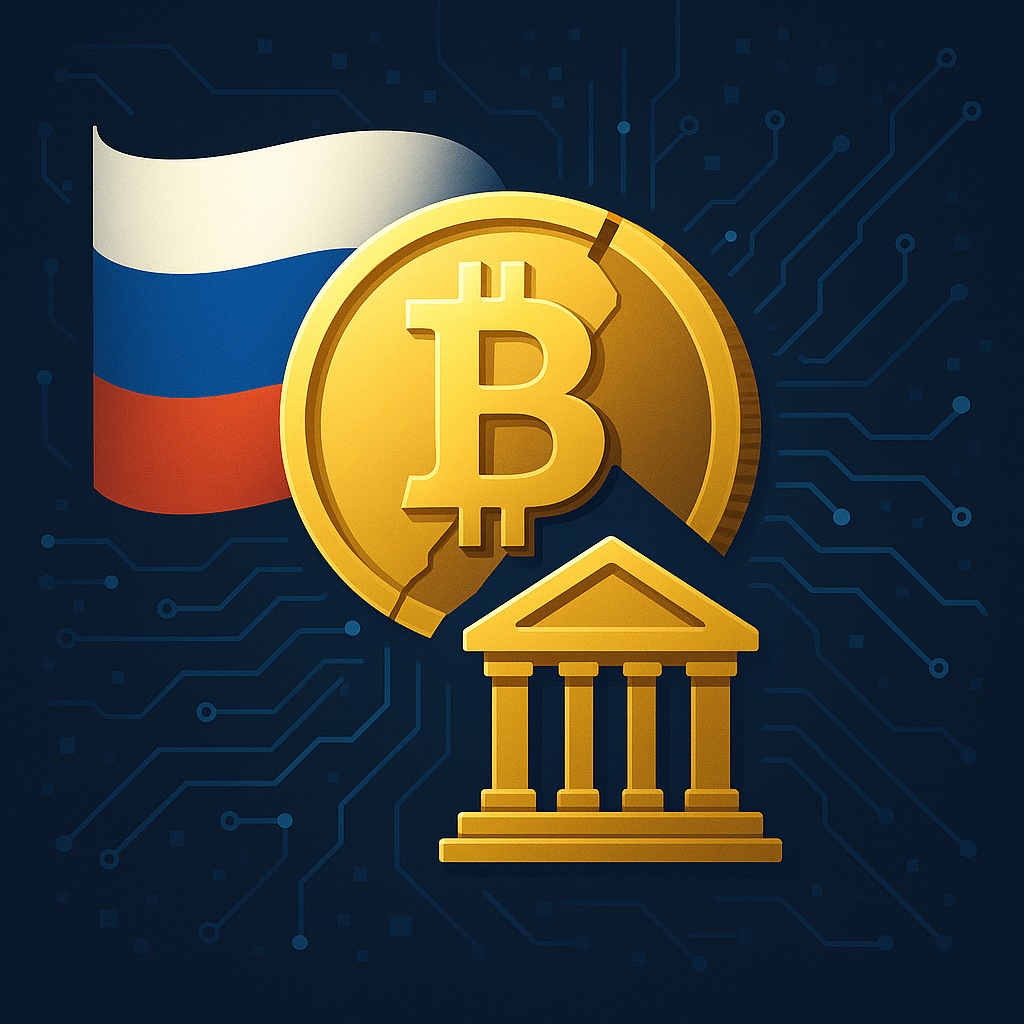???? A Strategic Crypto Pivot from Moscow
In a major development for the global digital asset market, the Bank of Russia has officially authorized financial institutions to offer cryptocurrency-based products to accredited investors. This regulatory shift marks a significant departure from the country’s historically cautious stance on digital assets and could reshape the landscape for crypto adoption across emerging markets.
The announcement, first reported by Cointelegraph, The Block, and TradingView, suggests that Russia is reorienting its financial strategy to include tokenized instruments, digital currencies, and blockchain-backed investment vehicles—albeit with limitations. For investors watching the regulatory dominoes fall globally, this move signals a pivotal moment in the mainstream legitimization of crypto finance.
???? Why This Matters for Investors
Russia’s newfound openness to crypto products comes at a time when digital assets are increasingly intersecting with mainstream finance, sovereign policy, and institutional portfolios.
While the offerings are limited to accredited investors, the change still represents a regulatory greenlight for banks to begin innovating within crypto asset classes. This opens the door for structured crypto products, blockchain-linked bonds, and hybrid tokenized securities—products that could find favor with high-net-worth individuals and institutional players within Russia and across Eurasia.
“This is a signal that crypto is being increasingly viewed not just as a speculative asset, but as a legitimate financial instrument—especially under regulated environments,” noted Anna Bodrova, senior analyst at Alor Broker, in a comment shared with TradingView.
???? Core Analysis: Behind Russia’s Crypto U-Turn
1. Geopolitical Strategy Meets Fintech Innovation
With Western sanctions continuing to restrict access to traditional global financial infrastructure, Russia is incentivized to diversify its financial instruments and reduce reliance on SWIFT and USD-based settlement systems. Blockchain-based finance offers a parallel rail—especially attractive for cross-border settlement, institutional financing, and digital reserves management.
2. Controlled Liberalization via Accredited Investor Model
The Bank of Russia has not opened the floodgates for retail speculation. Instead, it has taken a measured approach, limiting access to digital asset products to accredited investors. This mirrors similar frameworks seen in Singapore, Switzerland, and Hong Kong, where regulatory oversight remains strong while innovation is allowed to flourish.
3. Catalyst for Institutional Crypto Offerings in the East
As Sberbank, VTB, and Alfa Bank explore digital product offerings, Russia could become a regional hub for crypto-structured finance. This includes tokenized commodity contracts, crypto ETFs, and stablecoin-backed bonds, potentially mirroring successful experiments in Dubai and Abu Dhabi.
4. Ripple Effects Across Emerging Markets
With BRICS nations like Brazil and India also exploring central bank digital currencies (CBDCs) and regulated crypto frameworks, Russia’s shift could accelerate a larger trend of de-dollarization through blockchain tools. Countries looking to reduce dependency on Western-dominated financial systems may follow suit.
???? Market Reactions and Analyst Views
While the immediate market impact was muted due to the accredited-only restriction, digital asset-focused equities such as Coinbase (COIN), Galaxy Digital, and Bitfarms saw modest gains on anticipation of increased global crypto legitimacy.
Meanwhile, Bitcoin (BTC) held steady around $68,300, with analysts at The Block predicting a potential sentiment tailwind if similar moves emerge from Turkey, India, or Indonesia—all nations weighing regulatory frameworks for digital assets in Q3.
???? Key Investment Insight
Russia’s move signals a broader trend of regulatory normalization for crypto globally. Investors should anticipate increased demand for institutional-grade crypto products, especially in jurisdictions facing geopolitical or monetary headwinds.
Actionable Takeaway:
Watch for announcements from large Russian banks and Eurasian fintech firms. Exposure to blockchain infrastructure providers, regulated exchanges, and tokenization platforms could offer early-mover advantages. Additionally, diversified crypto funds and ETFs focusing on regulated markets may benefit from renewed capital inflows.
???? Stay Informed with MoneyNews.Today
As crypto regulation evolves across key economies, understanding the implications for investment strategies is critical. Subscribe to MoneyNews.Today for up-to-the-minute analysis on market-moving headlines—from regulatory shifts and digital finance innovation to macro trends and crypto-tech convergence.
Navigate the future of finance with confidence—powered by MoneyNews.Today.





